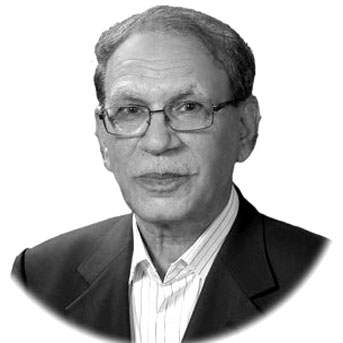Mohammad Jamil
JUI-F chief Maulana Fazlur Rehman ended the sit-in at Islamabad, and decided to enact its ‘Plan B’ to spread protest throughout Pakistan. “We will be leaving here tonight and will stand beside you (protesters), so the Azadi March proceeds successfully. Your presence here has pulled out the roots and the next step will be to root out the stem. Give one more push to the already falling walls,” he said during his address to the participants while wrapping up the dharna. He appealed to the people who could not join the Azadi March to come out now when the protests spread across Pakistan. Analysts and panelists had presaged that JUI-F’s demands specially resignation of Prime Minister Imran Khan was not tenable, and believed that Maulana would not go towards D chowk or red zone because of three-tier security comprising police, constabulary and army to protect diplomatic enclave and government buildings.
Maulana Fazlur Rehman declared: “According to our Plan B, we have staged a dharna protest on the Quetta-Chaman highway. We will also block Chakdara Chowk in Lower Dir and Indus Highway and Shahrah-e-Resham according to our plan.” Though he said he did not like to create problems for the people, but closure of highways and shahrahs would add immense problems for them, for one because people travelling in the buses will suffer, and stoppage of transport carrying items of daily use would add to sufferings of the people. The protesters had blocked the Quetta-Chaman Highway for traffic, and those travelling including the sick were stuck for more than 7 hours, and there was a long queue of trucks carrying essential items of daily use. Plan B is fraught with more dangers, as provincial governments would go into action to ensure safety and movement of the traffic.
On Tuesday, while addressing the participants of Azadi March, JUI-F Chief Maulana Fazlur Rehman had urged his party workers to come out from their homes to execute the ‘Plan-B’ which involved blocking major highways and trade links across the country. The JUI-F plans to close all main roads throughout Sindh, Punjab, Balochistan, and Khyber Pakhtunkhwa (KP). All the thoroughfares of Islamabad and Rawalpindi will be blocked as well by the Azadi March supporters. JUI-F leaders on one hand say that they will ensure that general public would not face problems while on the other they say that in order to achieve the objective, people will have to give sacrifices. Participants of JUI-F dharna in Islamabad had occupied Metro bus stations, which caused inconvenience to the general public for two weeks. There is a perception that PTM elements and activists of banned organizations that have gone underground may join the protestors.
The new trend of protesting through sit-ins is making life all the more unbearable. The recent Azadi March and dharna of JUI-F had led to countless traffic jams, noise pollution, and littering. The problem is that any party that stages sit-ins and protests says that the right to protest is enshrined in the constitution. According to Article 19 of the Constitution freedom of expression is not absolute. In addition to provisions in the Constitution, there are certain sacrosanct limits that have to be exercised in the civil polities; and universally accepted norms and standards have to be adhered to in all conditions. Whereas in a democracy the right to protest is allowed, but blocking the roads and creating hindrances in their movements is trampling on citizens’ rights by the protestors is not allowed, and since provincial governments are responsible for law and order, they must act .
PML-N and PPP leaders are angry over their trials in the courts and facing the charges for corruption and money-laundering. They consider PTI and Prime Minister Imran Khan for their woes. This was the reason that they had supported Maulana Fazur Rehman’s Azadi March, but never committed to participate in dharna. PPP Chairman Bilawal Bhutto Zardari had promised to join the March from Sindh, but stayed away on the pretext that he had organized a series of public meetings in Sindh. Bilawal Bhutto and Shehbaz Sharif had addressed the Azad March meeting at Islamabad once, but their workers and cadres neither participated in the March nor dharna. In fact, leaders of the two major political parties looked embarrassed when on the container they flanked Maulana Fazlur-Rehman, a leader of a much smaller party, conveying an impression of being the real opposition leader of Pakistan.
PPP and PML-N had disagreed with Maulana when after 2018 elections he had suggested resigning from the assemblies, realizing JUI-F has nothing to lose, whereas they are second and the third largest parties in the assemblies. There is a perception that they did not like to be seen playing a second fiddle, whereas Maulana Fazlur Rehman had taken the credit for organizing a grand show single-handedly. In his speeches, Maulana claimed he had the backing of the all opposition parties, but at the same time he complained that they had not supported him wholeheartedly. Anyhow, through Azadi March and two weeks dharna, Maulana has proved that he has the street power more than the major political parties. But by entering into second phase, Maulana Fazlur Rehmen is charting a course which is fraught with dangers, and he may lose whatever he has gained so far.
—The writer is a senior journalist based in Lahore.









